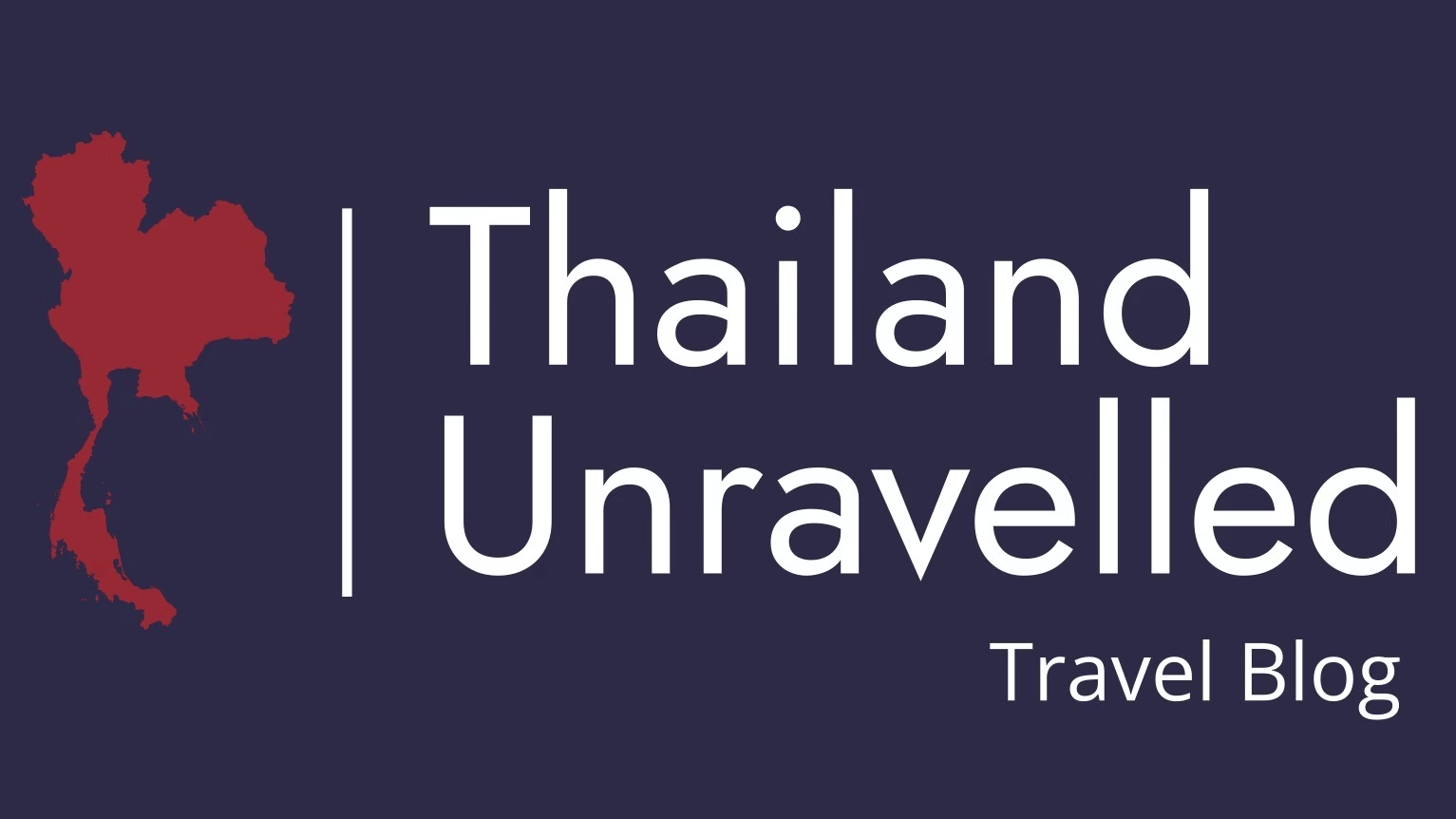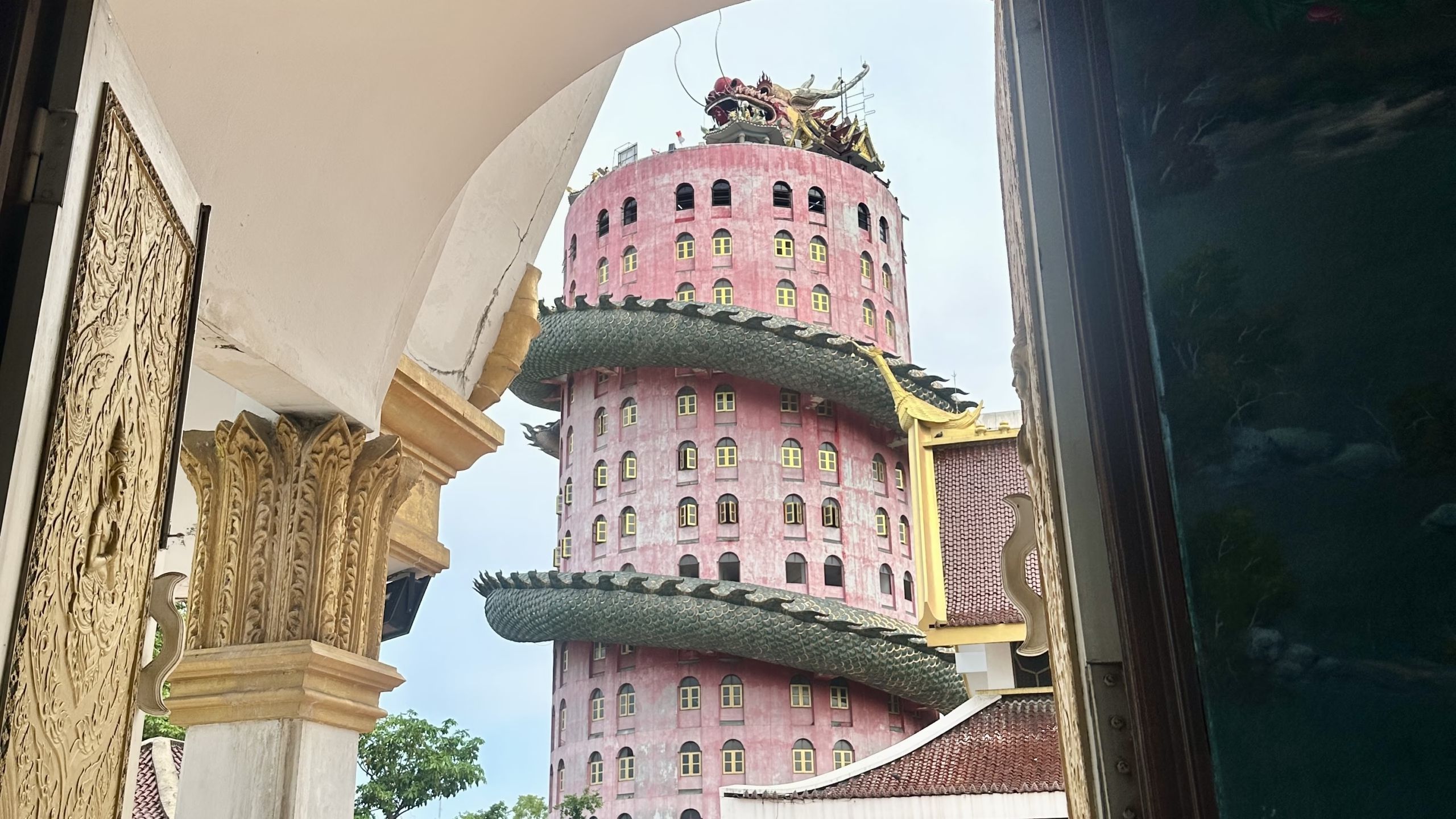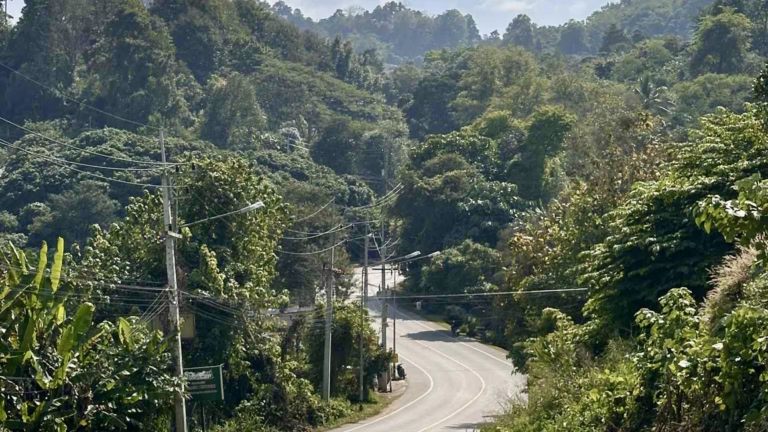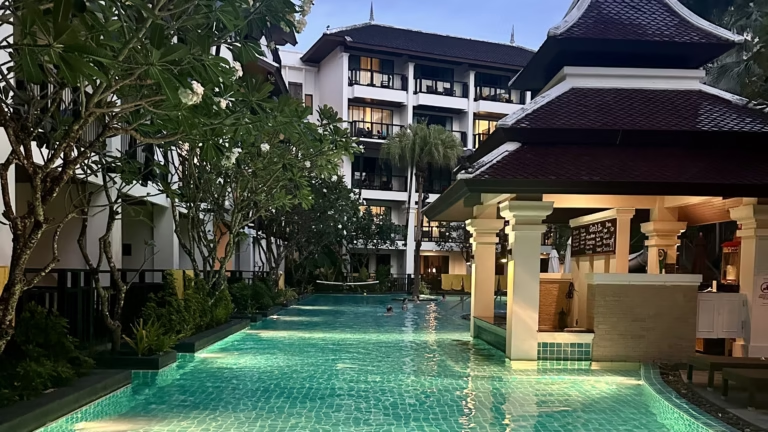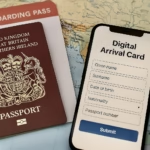This post may contain affiliate links. If you make a purchase through one of these links, I may earn a small commission at no extra cost to you. Thank you for supporting the blog!
Is Bangkok the scam capital of Asia?
Here, I’ll list the top 10 most common scams in Bangkok — and exactly how to avoid them.
Getting scammed sucks.
And while I’ve been to cities way worse for scammers (Istanbul, I’m looking at you), Bangkok is no exception.
With visitor numbers hitting 32.4 million in 2024, this makes way for plenty of unsuspecting tourists — and more opportunists ready to make a dishonest buck.
So come with me, check your belongings, and ignore the guy telling you the Grand Palace is closed — because it’s time to get scam-proof.
Airport Taxi Scam
This scam can hit you before you’ve even left the airport.
Here’s what can happen: these over-friendly “drivers” may approach you, offering fast rides into town.
Politely tell them “Mai chai khap khun” (no thanks).
Download and use Grab via the free airport Wi-Fi, then head straight to the nearest Grab kiosk at your arrival airport:
- Suvarnabhumi Airport (BKK)
Level 1, Gate 4 (Arrivals) – outside the terminal. - Don Mueang Airport (DMK)
Exit 2: From the arrival gate, turn right and proceed straight to Exit 2.
Exit 5: From the arrival gate, turn left and proceed straight to Exit 5.
Another great option is to pre-book your airport transfer with Klook — a super convenient way to organise your travel in advance, especially for larger groups with plenty of luggage.
Quick Tip: When taking a taxi or Grab from the airport, drivers will usually ask to take the expressway.
(Private transfers already cover these fees.)
Taxi Meter Scam
Here’s a quick-hit list of what shady Bangkok taxis have been known to pull:
- Rigged (Fast) Meter — The meter jumps rapidly, charging way more than normal.
- “Broken” Meter Excuse — The meter “stops working” mid-ride, and the driver demands a high flat rate.
- Refuses to Use Meter at All — The driver quotes an overpriced fare instead of turning on the meter.
- Sudden Price Change Mid-Ride — You agree on a price or meter, but it mysteriously increases before you arrive.
If you’re about to get in a city taxi, politely ask them to use the meter first. This is supposed to be a legal requirement.
If they say no meter, say no ride — time to find another cab.
It’s a shame a small minority ruin it for everyone, but that’s not your problem.
To avoid all this nonsense, use Grab or Bolt instead. (I find Bolt usually comes out cheaper.)
Quick Tip: If you’re in a group, it’s a perfect way to share referral codes and save even more baht.
Tuk-Tuk Driver Scam
Come on, now — you know how this one goes.
A friendly tuk-tuk driver will offer you a “special” tour, promising a unique experience. But what you actually get is — fake markets, overpriced suit tailors, or other random stops that make no sense.
Why? Because that friendly driver is pocketing a commission from these shady back-alley spots.
And remember — tuk-tuks don’t have meters, so you’re almost guaranteed to get overcharged at the end of your mysterious little tour.

Want to ride a tuk-tuk but hate negotiating ridiculous prices?
I couldn’t recommend using Muvmi enough.
Use referral code J6VFJYHL on sign-up to receive a 50 baht sign-up bonus!
(Ts & Cs apply)
“Grand Palace Is Closed” Scam
This is the one they tried on me.
Coming out of Sanam Chai MRT Station, a tuk-tuk driver stopped me and started talking about Wat Pho, pointing up towards the road behind him.
Keep in mind, it’s only a 2-3 minute walk in the complete opposite direction.
The Grand Palace and many other nearby sites are must-dos for any Bangkok traveller.
Here’s the trick: those super-friendly tuk-tuk drivers will stop you and say things like,
“Sorry, it’s closed today! Special holiday. Big ceremony.”
Just like before, the plan is to bring you to scammy little shops or sites where they get commission.
The truth is, these places almost never close unexpectedly.
Don’t take the bait.
Head straight to the entrance and check for yourself. If it really is closed, that’s just bad luck—try again another day.
Fake Tourist Information Centre scam
Some of these look legit.
Spoiler alert: they’re not.
You’ll end up paying way more than you should for dodgy tours and shady services — these “not really Tourist Info centres” rake in big commissions at your expense.
If something feels off, trust your gut and just walk away.
Avoid all of this—book your tours and tickets in advance with Klook, which partners directly with trusted local tour operators.
Fake Monk Scam
The tricky thing is that the perception of monks is one full of goodwill and holiness.
So when they approach you asking for a “donation” on the street, saying no can feel like bad karma, right?
Real Buddhist monks don’t hustle tourists for cash.
These pretenders often offer blessings or trinkets in exchange for money — sometimes even getting aggressive (definitely not very monk-like).
When you visit actual temples, you’ll have plenty of chances to donate properly.
Street monks with clipboards are just scammers in robes.
Wrong Change Scam
Getting used to any foreign currency can be a nightmare, and Thailand is no exception.
Since Thailand is mostly cash-driven for tourists, exchanging larger notes happens all the time.
Having only 1000 baht notes on you is not ideal.
Some places straight up don’t accept them — which is awkward when the bill comes and you’ve already demolished some fried rice with two large Changs.
Plus, it opens a window for sneaky vendors to invent some imaginary numbers.
Avoid this by breaking your big notes into smaller ones.
Pro tip: Grab a bottle of water from 7-Eleven for as little as about 5 baht (~$0.15) to get some small change.
Also, check your change before leaving anywhere.
Don’t get confrontational — just act like it’s an honest mistake, no matter what your gut says.
As for padded bills, this is a nightlife special.
It’s when mystery drinks sneak onto your tab.
When you’ve already had a few, it’s difficult enough to know what’s going on with anything, let alone your own bill.
Your best move is to Pay-as-you-go.
That way, everyone’s a winner.
Pickpocket and Phone Snatching
Unlike most scams that are just sly ways to make you part with more cash than you’d like, this one really hits home.
Like any big city, Bangkok is a hotspot for pickpocketing — especially in busy tourist areas like Pratunam Market.
Smartphones are like gold to pickpockets.
Here’s how to not be an easy target:
- Use zipped pockets on bags and keep them infront of you.
- Stay extra aware of your phone in crowded spots like Khao San or Chatuchak.
- Never leave your phone unattended on tables, even for a second.
And the scam doesn’t always end there.
If your phone does get stolen, don’t click any suspicious links or messages you get afterward — report the theft directly to Apple or Google.
Those messages are phishing attempts trying to steal your login info or money.
Don’t fall for it.
Like this blog? 📌
Pin it for later and come back to it anytime!

Motorbike Scam
Renting a motorcycle in Thailand comes with its own set of scams, including:
- Fake Damage Claim — Shops demand money for scratches or dents that were already there.
- Held Passport — Your passport is kept as collateral and used as leverage if disputes arise.
- Fake Accident Claim — Shops fake a collision or injury to charge you for “damages.”
I could go into more detail, but honestly, if you’re visiting Bangkok for a short time, you really don’t need to rent a motorcycle.
The public transport system, plus easy access to ride-hailing apps like Bolt and Grab, is more than enough to get you around.
I have a blog coming soon where I’ll cover everything you need to know about getting around Bangkok
Click below and subscribe to my page so you don’t miss this, or any other updates.
📩 Join our free newsletter: Packed with all the latest Thailand budget tips & real local insights!
+ You’ll get instant access to a mystery mobile discount! 🎁 (ooooh)
By subscribing, you agree to receive emails from us. Read our privacy policy .
Fake Police Scam
Real Thai police officers don’t go around plainclothed, demanding to see your belongings.
These imposters use “undercover police” as a front to search you and swipe your valuables.
It’s a scary scam because the last thing you want is to cause a scene with local authorities in a foreign country.
Stay calm, ask for ID, and say, “Let’s go to the station.”
If they start acting dodgy or weird, it’s because you’re basically asking them to hand themselves in.
Trust your gut — if something feels off, walk away quickly.

Final Thoughts
Keep this rule fresh in your mind—if someone approaches you first, especially in a tourist area, that’s often your first red flag.
Anything you seek out yourself, do your due diligence.
The internet is a wonderful thing—check Google reviews, search for vendors on Facebook, etc.
In my experience, Bangkok is an incredibly safe city—dare I say, it feels safer than my own capital city of London.
Just take some precautions, reduce that window of potential trouble to a minimum, and you’ll have a great time. I have no doubts about that whatsoever.
Awareness is your best defence in Bangkok. If you do get scammed, call the Tourist Police at 1155 — they speak English and can help.
Let me know in the comments below — Have you ever been scammed in Bangkok? What have I missed off this list?
